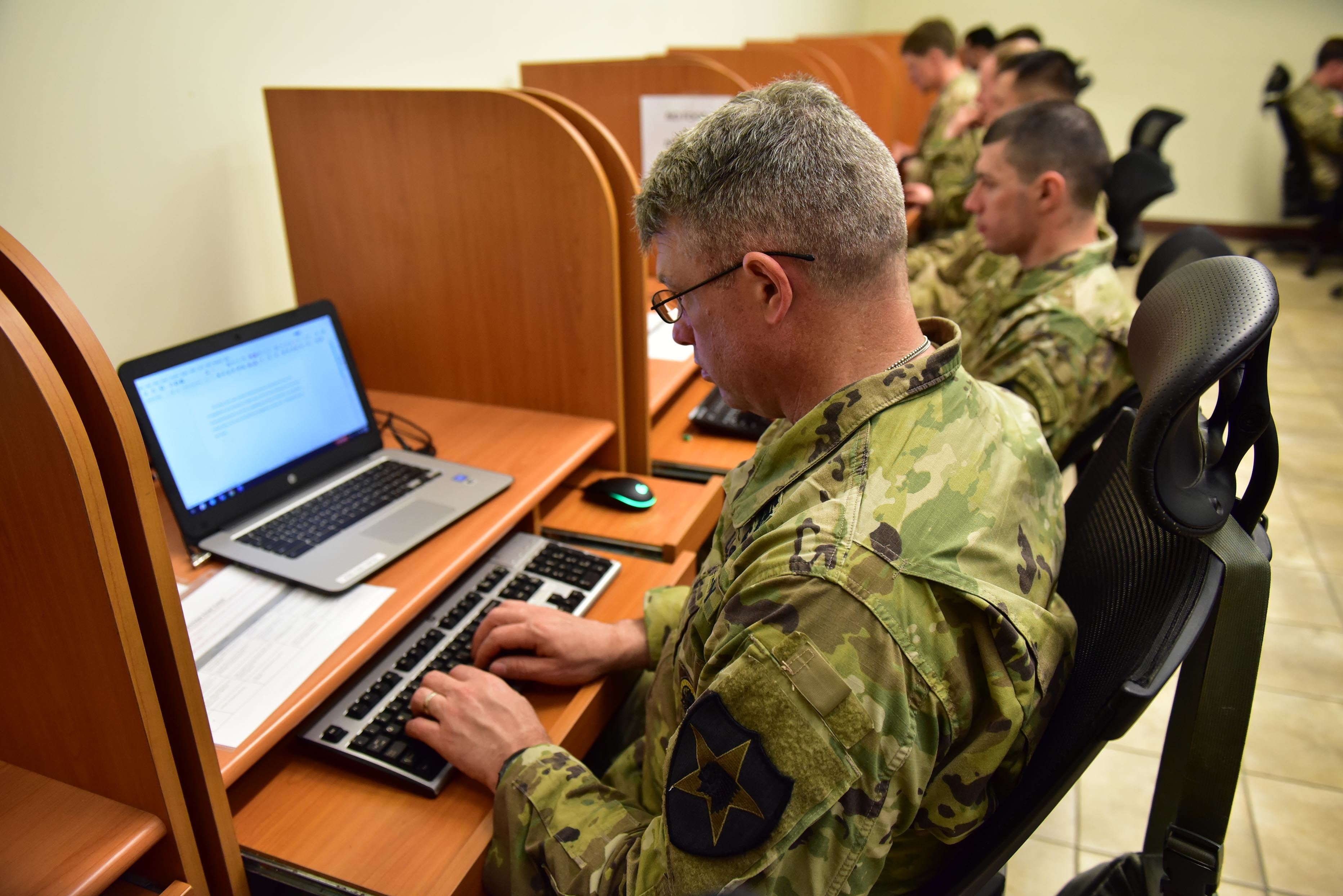Officials from the Army’s IT and communications directorate quietly posted a press release Wednesday conceding that they won’t have a new email system for junior troops in place by the end of March, as previously promised.
Instead, they plan to extend the existing system — Defense Enterprise Email, which was scheduled to go dark on March 31 — until at least Sept. 30. The unsigned release described the move as part of a “bridging strategy” to ensure soldiers “maintain access to government email accounts.”
The issue arose when planning documents and briefings on the transition to the service’s new email and collaboration program, Army 365, revealed that about 250,000 junior enlisted troops would not automatically receive a license to use the platform.
The service opted to buy fewer licenses than personnel in order to save on costs, reasoning that lower-ranking soldiers were less likely to need the Army 365 suite’s collaboration tools. Troops in the grade of E-4 and below require a colonel’s approval to receive a license, according to interim guidance previously obtained by Army Times.
That meant that a quarter of a million troops stood to lose their access to official email, though Army officials quickly decided to pursue an “alternate solution” to the issue.
RELATED

The solution, according to IT officials, was to build those troops a new, lower-cost email platform to ensure they maintained access to official email for sensitive personal documents, such as orders, medical records and other benefits. Before Wednesday’s release, they said it would be complete by March 31.
“Between now and March, when [DEE] is slated for decommissioning, we will have a solution to transition everybody and their current email capabilities to either Army 365 or an alternate [email] solution,” Dr. Raj Iyer, the Army’s chief information officer, told reporters in a Dec. 15 roundtable. The service’s G-6, Lt. Gen. John Morrison, was less bullish, warning that the March deadline could be extended if necessary.
IT sources who spoke with Army Times in December argued that Iyer’s timeline was impossible.
“Any option at this late stage besides buying licenses will see [the Army] exceed [the] deadline,” argued one source.
A second source, in an interview conducted before the Dec. 15 roundtable, suggested the Army may “play chicken” with the Defense Infrastructure Security Agency in an effort to buy more time with mail.mil email and extend the deadline to field an alternate email solution.
And that’s exactly what happened.
The alternate email solution is taking longer than expected, the unsigned release said. But it claimed that the service is “making significant progress towards implementing an alternate email solution for Soldiers.” According to a source who attended a Thursday meeting discussing the Army 365 transition, a draft version of the release specified that the alternate email solution is for the junior troops who don’t rate Army 365 licenses.
Col. Joseph Garner, a G-6 division chief involved in the Army 365 transition, said in the release that the delay is needed to permit the Army to “work our way through the mission analysis to ensure the alternate email solution will deliver an enduring capability for our Soldiers.”
Meanwhile, some service members are experiencing issues with the transition, but they’re taking it in stride.
One anonymous poster on an Army Reddit community reported their Army 365 email account had been deleted, and that they had previously lost access to their mail.mil Defense Enterprise Email account, too.
“My friends, I refuse to use my personal email for work purposes not out of spite, but out of principle,” the user said, jokingly. “I will not bow down to the Office 365 overlords.”
Davis Winkie covers the Army for Military Times. He studied history at Vanderbilt and UNC-Chapel Hill, and served five years in the Army Guard. His investigations earned the Society of Professional Journalists' 2023 Sunshine Award and consecutive Military Reporters and Editors honors, among others. Davis was also a 2022 Livingston Awards finalist.




